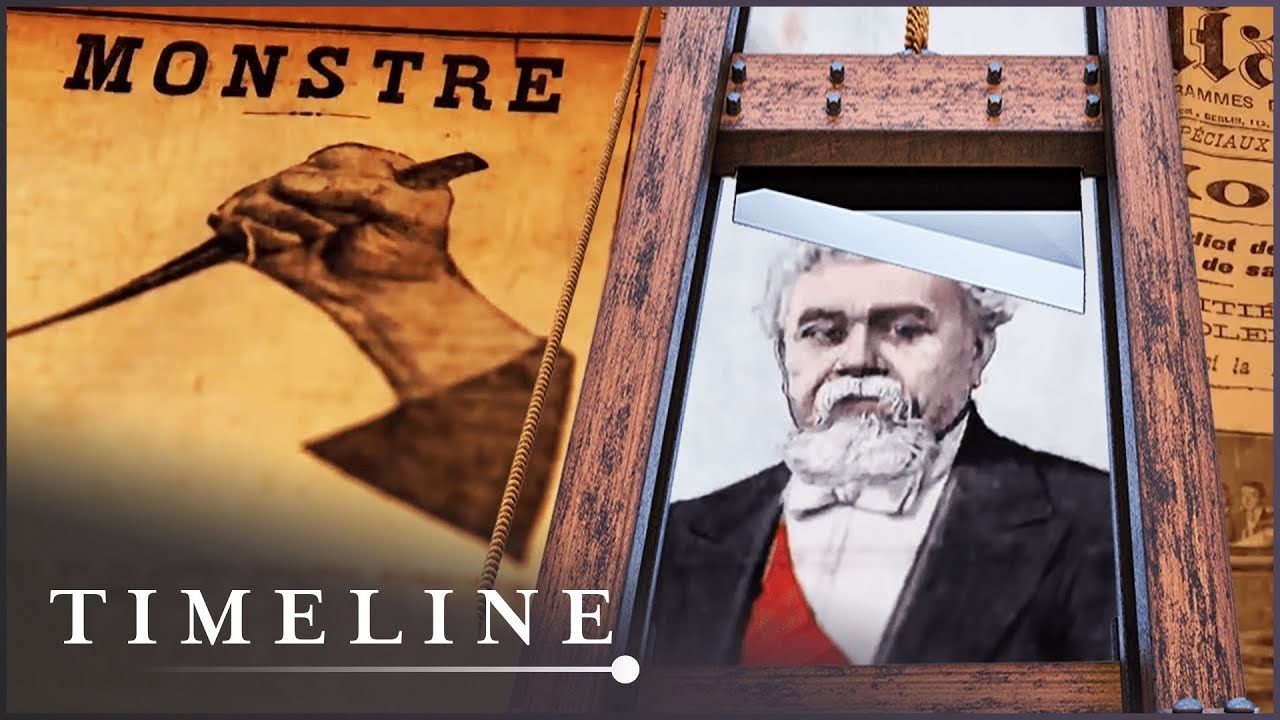Introduction
In the annals of French history, there have been certain crimes that have not only shocked the nation but also sparked intense public interest, inspired literary works and cinematic adaptations, and even played a pivotal role in shaping social and legal reforms. These notorious cases stand as a testament to the dark side of human nature and the profound impact they had on the French justice system. In this article, we embark on a fascinating investigation into some of the most infamous and terrifying crimes in French history, delving into the gripping narratives, the ensuing public frenzy, and the profound consequences that ultimately halted the abolition of the death penalty.
What Halted the Abolition of the Death Penalty?
The heinous crime committed by Henri-Désiré Landru is a chilling chapter in French history that captured the public’s imagination and became a catalyst for social change. Landru, also known as “Bluebeard,” was a notorious serial killer who lured unsuspecting women through personal ads and subsequently murdered them. His crimes shocked the nation, inspiring books, movies, and widespread public fascination.
However, beyond the sensationalism, the Landru case had a profound impact on French society. It halted the end of the death penalty and prompted a critical examination of the criminal justice system, leading to important reforms in fair trials, investigative techniques, and the rehabilitation of offenders. The Landru case serves as a stark reminder of the depths of human depravity and the enduring pursuit of justice in the face of unimaginable horror.
The Crime that Haunted France
One such case that captured the nation’s attention and halted the abolishment of the death penalty was the horrifying crime committed by Henri-Désiré Landru, also known as “Bluebeard.” In the early 20th century, Landru lured several women into his web of deceit, seducing them with promises of love and marriage, only to brutally murder them and dispose of their remains. The extent of his crimes and the macabre discoveries made at his residence sent shockwaves throughout French society and ignited a fervor for justice.
The Trial that Transfixed the Nation
Landru’s trial, which began in 1921, became a media sensation and a focal point of public fascination. The courtroom was filled with spectators eager to witness the proceedings, and the press extensively covered every detail of the trial. The case captivated the nation, as the prosecution presented a mountain of evidence against Landru, revealing the extent of his monstrous acts. The trial’s outcome would not only determine Landru’s fate but also have far-reaching implications for the future of the death penalty in France.
A Battle for Justice and Public Opinion
While some argued for the abolition of the death penalty, the Landru case and its gruesome details raised strong public sentiment in favor of its retention. The heinous nature of Landru’s crimes, coupled with the growing fear of such atrocities recurring in society, fueled a fervent debate on the effectiveness of capital punishment as a deterrent and a means of retribution. The prosecution skillfully played on these fears, painting Landru as a cold-blooded predator deserving of the ultimate punishment.
The Verdict and Its Aftermath
In the end, the jury found Henri-Désiré Landru guilty of multiple murders, and he was sentenced to death. The verdict reflected the public’s demand for justice and provided a resounding answer to the question of whether France was ready to abandon the death penalty. The Landru case became a turning point in the country’s criminal justice system, effectively halting the abolition of capital punishment and emphasizing the need for retribution in the face of such heinous crimes.
The Legacy and Lasting Impact
The Landru case and similar high-profile crimes not only captivated the public’s imagination but also had a lasting impact on French society. The public outcry and the jury’s verdict reinforced the belief that certain crimes warranted the harshest punishment available. The Landru trial highlighted the deep-rooted fear and desire for justice within the collective consciousness, ultimately influencing the French government’s decision to retain the death penalty for several more decades.
The Shift Towards Reforms
While the Landru case halted the immediate abolishment of the death penalty, it also served as a catalyst for broader criminal justice reforms in France. The public’s growing awareness of the need for fair and transparent trials, improved investigation techniques, and psychological profiling led to significant changes in law enforcement practices and judicial procedures. These reforms aimed to ensure a more just and efficient system while maintaining the public’s confidence in the pursuit of justice.
Conclusion
The heinous crime committed by Henri-Désiré Landru, and its subsequent impact on French society, stands as a stark reminder of the depths of human depravity and the enduring quest for justice. The Landru case not only captivated the nation and halted the abolition of the death penalty but also sparked a collective examination of the criminal justice system and the balance between punishment and reform.
While the preservation of the death penalty may have been a controversial outcome, the case prompted crucial reforms and ignited discussions on the necessity of fair trials, improved investigative techniques, and the rehabilitation of offenders. Ultimately, the Landru case serves as a haunting testament to the power of crime to shape society and the enduring quest for justice in the face of unimaginable horror.
